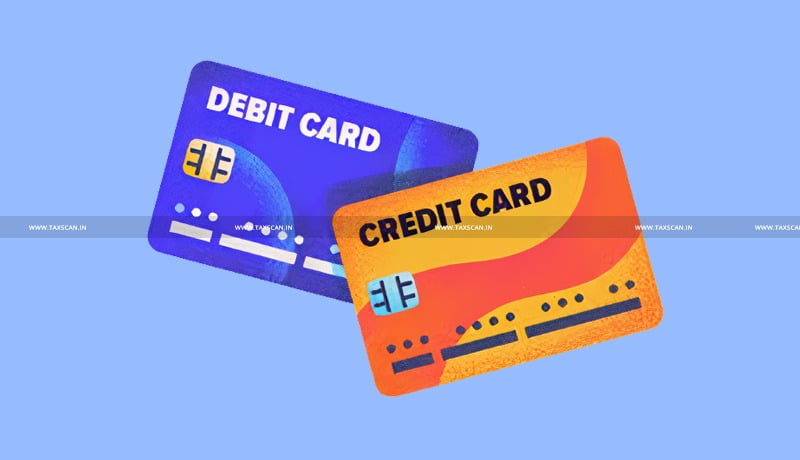Credit Card Myths Debunked: What You Need to Know
Credit cards have been around for decades, yet they remain one of the most misunderstood financial tools. People often avoid them out of fear, while others misuse them due to common myths that have been passed down over time. The truth is, credit cards can either work for you or against you depending on how well you understand them. In this article, we’ll debunk some of the most widespread myths about credit cards and explain what you really need to know. Whether you’re a student, a young professional, or a seasoned cardholder, separating fact from fiction can save you money and help you build a stronger financial future.
Myth 1: Carrying a Balance Improves Your Credit Score
One of the most damaging myths is the belief that carrying a balance month to month helps improve your credit score. In reality, this is false. Credit scores are influenced by your credit utilization ratio—how much of your available credit you’re using—not by whether you’re paying interest.
The truth: Paying off your balance in full every month not only saves you from interest charges but also demonstrates responsible credit management. Carrying a balance only benefits the credit card company, not your score.
Myth 2: Having Too Many Credit Cards Hurts Your Credit
Some people believe that opening multiple sensa69 accounts automatically harms their credit score. While applying for several cards in a short period can trigger hard inquiries and cause a temporary dip, simply having multiple cards isn’t bad.
The truth: What matters most is how you manage them. In fact, having several cards can increase your total available credit, lowering your utilization ratio, which is a positive factor for your score. The key is responsible usage—paying bills on time and keeping balances low.
Myth 3: Credit Cards Always Lead to Debt
Many people avoid credit cards entirely because they associate them with endless debt. This is a half-truth. Yes, if misused, credit cards can lead to financial trouble, but the same can be said of loans or even mismanaged cash.
The truth: Credit cards are simply tools. With discipline—only charging what you can afford and paying in full each month—you can enjoy rewards, fraud protection, and convenience without debt. Blaming the card itself is like blaming a hammer for hitting your finger.
Myth 4: Closing Old Cards Boosts Your Score
It might seem logical to close old or unused cards to “clean up” your credit profile. However, this can actually backfire.
The truth: Length of credit history is an important factor in your score. Closing old accounts shortens your history and reduces your available credit, which can increase your utilization ratio. Unless the card has high annual fees, it’s often better to keep it open, even with minimal usage.
Myth 5: All Credit Cards Have the Same Benefits
Not all credit cards are created equal. Some people assume that all cards work the same way, but benefits can vary dramatically.
The truth: Some cards offer cash back, others provide travel rewards, while others focus on building credit for beginners. Choosing the right card depends on your lifestyle and goals. If you travel frequently, a travel rewards card may save you thousands in flights and hotels. If you prefer simplicity, a flat-rate cash-back card might be the best choice.
Myth 6: You Should Avoid Credit Cards to Stay Safe
A surprising number of people still believe cash or debit cards are safer than credit cards. They worry about fraud, overspending, or identity theft.
The truth: Credit cards actually provide stronger consumer protections. If your card is stolen, federal law limits your liability, often to $50 or even zero, and fraudulent charges can be disputed. Debit card fraud, however, can drain your bank account instantly, leaving you exposed until the bank resolves the claim.
Myth 7: Credit Limits Never Change
Some cardholders think the limit assigned when they open the account will never increase.
The truth: Responsible usage often leads to automatic credit limit increases over time. Paying on time, keeping balances low, and building a history of responsible use signals to issuers that you deserve more trust. A higher limit can improve your utilization ratio and strengthen your score—provided you don’t see it as permission to overspend.
Using Credit Cards Wisely: Tips You Can Trust
Now that the myths are out of the way, let’s highlight a few golden rules for smart credit card use:
-
Always pay in full and on time. Avoid interest by treating your card as a tool, not a loan.
-
Monitor your credit utilization. Try to stay under 30% of your limit for optimal scores.
-
Take advantage of rewards. Use cards aligned with your spending habits—cash back, travel, or points.
-
Review your statements. Regular checks can help you spot fraud early.
-
Don’t fear credit—respect it. Used wisely, it opens doors to loans, mortgages, and better financial opportunities.
Final Thoughts
Credit cards are often misunderstood because of long-standing myths that simply aren’t true. By debunking these misconceptions, you can approach credit with confidence rather than fear. Remember, credit cards are not inherently good or bad—they are tools. Like any tool, their effectiveness depends on how you use them.
By applying the right strategies, you can build a strong credit history, enjoy valuable rewards, and protect yourself financially. Don’t let myths control your money decisions. Instead, arm yourself with knowledge, discipline, and smart practices to make credit cards work for you.
In today’s fast-paced digital era, where platforms like sensa69 highlight the importance of financial literacy and smart decision-making, understanding how credit truly works is more important than ever. Use your card wisely, and you’ll discover that it can be one of the most powerful financial tools at your disposal.

